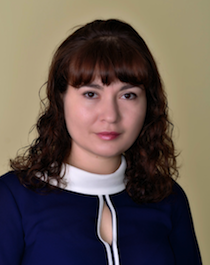1776 Challenge Cup goes to Ukraine in search of the next great idea

Olena Kaplan, Beecham Research
Just over a week ago, I had the opportunity to attend the first ever 1776 Challenge Cup in Ukraine, writes Olena Kaplan, a senior analyst with Beecham Research.
For those not familiar with the competition, it is a worldwide tournament which aims to identify the most promising, highly scalable start-ups that are aiming to assist in solving the major challenges of our time in the education, energy, health, transportation, financial and food industries. It is run by 1776, a global incubator and venture fund in partnership with Start-up Federation partners, Revolution, a venture capital investment fund ,and the Global Entrepreneurship Network (GEN). The competition goes through three rounds: local, which is country based, regional and the global final, which takes place in Washington D.C. At the first level, local judges determine three winners. The total of 135 local winners are then expected to participate at the regional level.
The tournament represents a unique opportunity for start-ups. In addition to the grand prize of $1 million for business development, they have the opportunity to present their project to the wider pool of investors and media as well as to gain valuable connections to grow their business. While the tournament rules do not specify that it has to be a smart technology solution, in reality a significant proportion of the start-ups in fact are in the sector. The Ukrainian event was not an exception.
Amongst the selected 13 finalists only one start-up was not offering some sort of smart solution either for the home or for the city or for personal use. While Ukraine only this year fully commenced adoption of 3G technology, its innovative entrepreneurial spirit is well in line with the rest of the world. Ukraine’s IT sector has been experiencing a continuing boom over the last decade and it continues to attract interest from the global community. Ukraine produces 16,000 IT graduates each year while engineering graduates represent 20% of all graduates in the country. The country joined the list of top 30 Outsourcing Destinations by Gartner in 2007 and in 2011 it was recognised by outsourcing experts as the top destination for IT outsourcing and won the nomination Outsourcing Destination of the Year in the European Outsourcing Excellence Awards. As a result, already more than 100 global companies have software R&D facilities in Ukraine. In 2015 Microsoft opened its IoT Lab in Kiev to support start-ups and SMEs looking to harness the power of IoT. All this has come at a time when Ukraine’s political and economic situation remains desperate. The country is in dire financial straits and dependent on financial assistance from the IMF, the US and the EU.
IT is a segment full of young professionals, which is exactly what I was able to observe in the tournament. The majority of finalists comprised either students or recent graduates, and most projects focused on the smart technology innovations that we see in more advanced economies.
The difficult economic and political situation in the country makes Ukrainian start-ups focus on global markets with local markets being viewed as secondary by participants because of their current stage of development. They focus primarily on the US and Western European markets. Amongst the projects presented were:
1-M Smart home solutions
ABC talk with me, an educational app for early stage child development
Adtena, a marketing and technical solution to combine different free Wi-Fi networks
Pilot, a smart integrated cloud based shopping solution
EcoisMe, a smart energy consumption monitoring system
Doc Travel, a smart medical app for travellers
Quire, a cloud based card processing for banks
Umuni, a smart city platform
EnergyLayer, smart energy devices and a web platform for Grid 2.0, enabling hassle-free clean energy production, plug-n-play grid connectivity and live monitoring
A wooden urban bike, Woodrover
Each participant faced a challenge presenting within a tight competition scope and some of the participants found it harder than others to explain their products. Nonetheless, the winners EcoisMe, Pilot and smart energy solutions platform EnergyLayer highlighted the global importance of smart solutions and energy.
The Ukrainian potential in this market with the support of such tournaments and global companies can provide a platform for repeating the success shown by Viewdle, a Ukrainian image and gesture recognition company which was acquired by Google, or may even introduce entirely new global players in the evolving IoT space.
Olena Kaplan
Senior Analyst